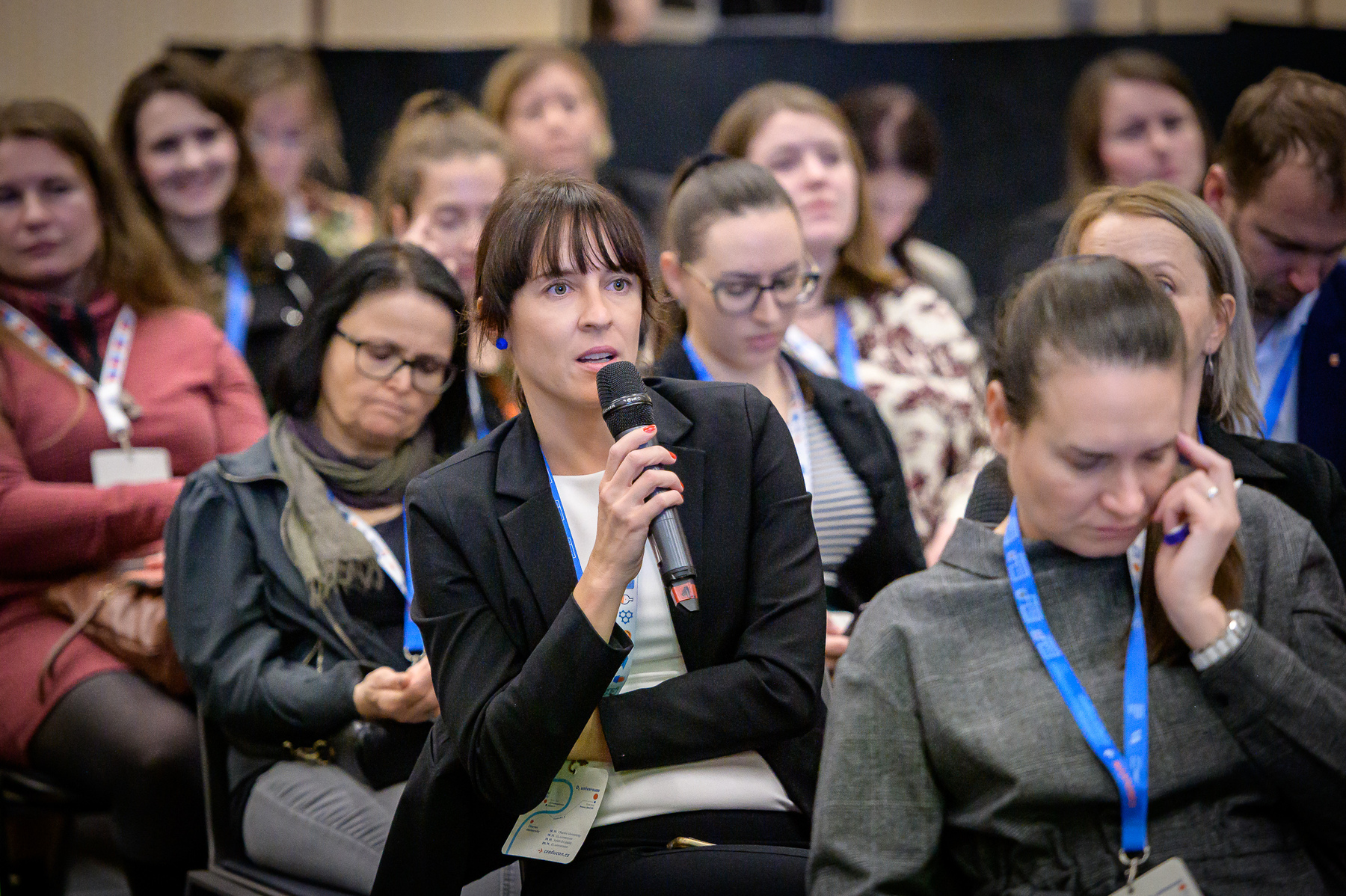What were the most popular sessions at last year’s CZEDUCON? Get inspired — and become a speaker at this year’s 7th edition
Last November, CZEDUCON welcomed nearly 700 participants to the O2 universum, offering over 60 panels, lectures, and workshops.
This year, we expect up to 900 attendees and 130 speakers. The biggest change? A new name. After six successful editions, CZEDUCON becomes CEEDUCON — the Central European Education Conference. The new title reflects its growing international scope and ambition to become a regional hub for innovation and collaboration in education.
Watch the video message from Michal Uhl, Director of the Czech National Agency for International Education and Research (DZS), to learn more about this year’s focus.
The four main themes of CEEDUCON 2025:
- Smart & Sustainable International Cooperation
- Internationalisation for All
- Global & Regional Partnerships
- Alumni – Employability – Future Skills

And which speeches, lectures, panel discussions, and workshops resonated most within our community last year? Here’s a quick recap:
- Internationalisation Redefines Education
Michal Uhl (DZS) emphasised that internationalisation is no longer optional—it’s a prerequisite for developing global skills and ensuring access, quality, and excellence in higher education.
- EAIE Barometer 2024 – Key Findings for the EHEA & Czechia
Laura E. Rumbley and Jody Hoekstra-Selten (EAIE) presented insights from 2,800+ respondents across 46 countries. The data urge Czech institutions to focus on impact, sustainability, and staff development.
- Panel Discussion – Best practices and Practical Examples Towards Achieving an International Experience for All - Lessons from MICHE
Experts from the MICHE project presented practical ways institutions can assess and advance their internationalisation strategies, including peer learning and expert visits.
- Doing More by Doing Less: A Sustainable Approach to Well-Being
Experts from VŠE and Ivey Business School discussed how excessive student support can reduce self-reliance and waste resources — and shared how to strike a sustainable balance.
- Blended Intensive Programmes: Learning from Institutional, Academic, and Student Cooperation
Speakers shared lessons from BIPs through academic, student, strategic, and expert perspectives—highlighting the challenges and value of deep international collaboration.
- Internationalisation for All: Between What We Dream and What We Experience
Based on five years of student reflections and teacher interviews, this session explored how multicultural teamwork and community projects informed a course on managing intercultural classrooms.
- Cooperation with High School Counsellors
The session highlighted how engaging counsellors can help universities reach students early, guide them through international study options, and better understand their needs—while also addressing practical challenges of such cooperation.
- What Direction Will the Concept of Microcredentials Take in the Czech Republic This Year?
Representatives of Charles University and other institutions shared progress on a nationwide project involving all 26 Czech public universities—aimed at creating a shared microcredential framework aligned with European standards.
- Promoting Europe as a Study Destination: Insights from Study in Europe
How can Europe promote its rich and diverse study offer as one destination? This session presents the EU-funded Study in Europe initiative, run by six national agencies (Campus France, DAAD, Nuffic, HARNO, ACA, DZS), and shows how institutions and stakeholders can get involved.
- Staff Week Tradition: Building Bridges for International Collaboration
For over a decade, Staff Weeks have connected university staff across Europe. This panel shares insights from three Czech universities on organising these events — from best practices to common challenges and their wider impact on internationalisation and campus culture.
- Inclusion at the Core of Global Education
A. Sarah Ilchman (IIE) called for equity in international experiences, stressing that access to global education must extend beyond privileged groups to truly transform individuals and society.
- Hybrid Learning & AI: Blending Tradition and Innovation
Daria Hvížďalová (School 42 London) highlighted that AI should enhance—not replace—human connection in learning, offering new tools for engagement and flexibility.
Would you like to contribute your expertise at CEEDUCON 2025?
Submit your proposal and become part of this growing international community.